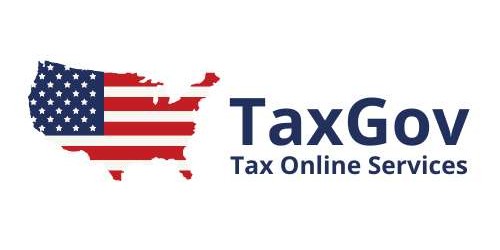Understanding ITIN for Chinese Citizens
Understanding ITIN for Chinese Citizens is essential for those who are residing, working, or conducting business in the United States without a Social Security Number. The Individual Taxpayer Identification Number (ITIN) is used by non-citizens for tax purposes. For Chinese citizens, acquiring an ITIN involves navigating through IRS guidelines specifically designed to accommodate international taxpayers. The ITIN helps Chinese nationals comply with U.S. tax laws and claim potential tax benefits. Without an ITIN, Chinese citizens may face difficulties in filing taxes and availing certain financial opportunities. Therefore, understanding how to obtain and use an ITIN effectively is crucial for ensuring compliance and taking full advantage of the U.S. tax system.
Eligibility Criteria for ITIN Application
Eligibility Criteria for ITIN Application is a fundamental step for Chinese citizens preparing to file taxes in the United States. An ITIN is typically available to those who are not eligible for a Social Security Number but are required to file a U.S. tax return or provide tax identification. Chinese students, scholars, investors, and businesspersons often fall into this category. Understanding the need for an ITIN, such as being a nonresident alien required to file a return, is essential. Additionally, the applicant must provide specific documentation, including a valid passport and visa details, to prove their identity and foreign status. Ensuring that you meet these criteria is important for a smooth application process and allows you to comply with U.S. tax obligations seamlessly.
Need help getting your ITIN?
We can help you apply for your ITIN quickly and easily. Let our team handle the process for you.
Steps to Apply for an ITIN
Steps to Apply for an ITIN are crucial for Chinese citizens who need to engage in financial activities in the U.S. The process begins with completing IRS Form W-7, Application for IRS Individual Taxpayer Identification Number. Ensure the form is filled accurately with all necessary personal details. Supporting documentation must be submitted, including identification proof and a federal income tax return. It is imperative to follow the IRS guidelines closely to avoid delays. Documents need to be either original or certified copies. It’s worthwhile to consider consulting a Certified Acceptance Agent (CAA) to assist in navigating the complexities of the application process. This step-by-step approach ensures that Chinese citizens can successfully apply for an ITIN and utilize it for their U.S. tax activities.
Why ITIN is Expired: Understanding Renewal
Why ITIN is Expired: Understanding Renewal is critical for Chinese citizens who might not regularly file U.S. tax returns. An ITIN can expire if it is not used on a federal tax return for three consecutive years or based on IRS phased expiration guidelines. Understanding the expiration schedule helps avoid last-minute surprises during tax season. Renewal requires submitting a renewal application along with updated documentation, similar to the original application. It’s essential to address expiration promptly, as an expired ITIN can delay tax return processing and affect financial transactions. Keeping an eye on the expiration status ensures uninterrupted tax compliance in the U.S.
Common Challenges During ITIN Application
Common Challenges During ITIN Application can often deter Chinese citizens from proceeding with their tax identification process. Language barriers, understanding specific IRS requirements, and gathering the correct documentation can pose significant hurdles. Moreover, errors on the Form W-7 or insufficient proof of identity can lead to application rejections. It is also common to face issues retrieving tax returns or waiting for approval if not all criteria are met initially. To overcome these obstacles, it’s advised to seek expert guidance or engage agents familiar with the process to ensure all documentation meets the IRS standards. Addressing these challenges proactively can facilitate a smooth and successful ITIN application for Chinese nationals residing abroad.
Understanding the Role of Acceptance Agents
Understanding the Role of Acceptance Agents can greatly simplify the ITIN application process for Chinese citizens. Certified Acceptance Agents (CAAs) are authorized by the IRS to assist applicants in the ITIN process by reviewing and submitting forms and necessary documentation to the IRS. They provide invaluable support in navigating the complex requirements, notably by preventing common application errors. By verifying documents and ensuring compliance with IRS mandates, CAAs streamline and expedite the application and renewal process. This support is advantageous, especially for those unfamiliar with the U.S. tax system, making the agent’s role essential for efficient tax identification number acquisition.
Post-Application Considerations for Chinese Citizens
Post-Application Considerations for Chinese Citizens involve understanding how to use an ITIN after approval. Once received, an ITIN enables Chinese citizens to comply with U.S. tax obligations. However, it’s important to remember that an ITIN does not qualify as authorization to work in the U.S. or provide eligibility for Social Security benefits. ITINs must be renewed depending on activity, as they expire after a period of non-use. When relocating back to China or changing visa status, it’s vital to understand how these changes impact your ITIN status. Keeping your contact and personal information updated with the IRS ensures continued receipt of important notices. By paying attention to these considerations, ITIN holders can manage their fiscal responsibilities effectively in the U.S.
Need help getting your ITIN?
We can help you apply for your ITIN quickly and easily. Let our team handle the process for you.
Key Differences Between ITIN and SSN
Key Differences Between ITIN and SSN are pivotal for Chinese citizens to comprehend. While an ITIN is primarily used for tax purposes, allowing individuals who do not have a Social Security Number to comply with U.S. tax laws, an SSN is used for both tax and social security benefits, and typically only available to citizens and eligible residents. Knowing these differences is critical, as they affect how you file taxes and receive benefits. ITIN holders do not qualify for the same benefits as those with an SSN. Proper understanding ensures lawful participation in the U.S. tax system and helps strategize personal finance management effectively.

